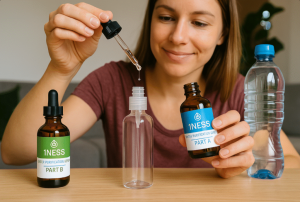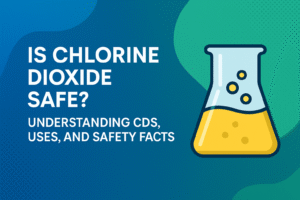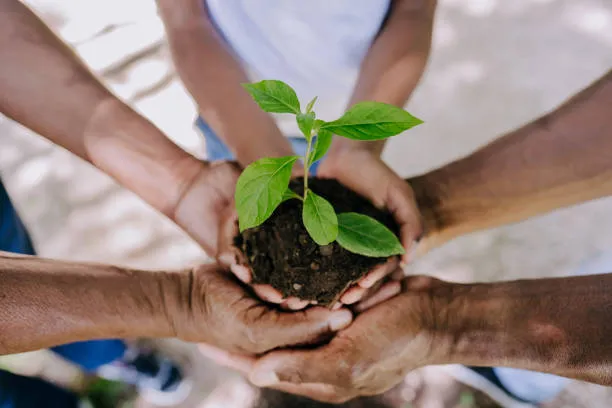True Sustainability: A Lifestyle Beyond the Buzzword
Sustainability isn’t just a trend or catchy slogan—it’s a mindset and way of life. It’s not found in the latest eco-friendly gadget or viral TikTok—it’s built through daily habits that foster independence, resilience, and true connection—with ourselves, our communities, and the planet.
At its core, sustainable living is about using less, wasting less, and maximizing what you already own. It’s choosing to grow your own food, fix broken items instead of tossing them, and relying on natural remedies that support health—without overburdening industrial systems.
For older adults in particular, sustainable practices can restore trust in your body’s innate wisdom. With thoughtfully crafted products like soursop tincture (for digestive and mental clarity), mullein drops (for respiratory support), and chlorine dioxide water purification drops, you can take small yet meaningful steps toward health independence—without giving up quality or efficacy.
In this post, we’ll explore real-world sustainability: what it looks like, why it matters for health, how to pass it on to younger generations, and where to begin. Whether you’re building a more autonomous life or teaching others to do the same, true sustainability is your path to purpose, wellness, and freedom.
1. Sustainability Isn’t Just Recycling
When you hear “sustainable,” you probably think of recycling bins or solar panels. That’s a start—but true sustainability runs deeper. It’s about living better by needing less.
Imagine this:
- Growing your own herbs on the windowsill.
- Repairing worn-out items rather than replacing them.
- Buying from local suppliers instead of global giants.
- Cherishing every drop of clean water—treated at home.
These actions reduce waste, cut costs, and strengthen your ability to depend on yourself—a powerful step away from the systems that benefit from your consumption.
Plus, moving toward self-reliance supports natural health. Our soursop tincture and mullein drops help you reclaim your wellness by supporting digestion, immunity, and lung health without synthetic ingredients. And chlorine dioxide drops ensure your water is clean, reliable, and free from microplastics and chemical contaminants so common in commercial systems—which is a direct, sustainable investment in your health.
Real sustainability isn’t just “better for the planet”—it’s better for your body, your wallet, and your sense of agency.

2. Why Sustainability Boosts Your Health
Living sustainably isn’t only an environmental choice—it’s a prescription for better physical and mental well-being.
- Nutrient-dense food: Herbs and vegetables grown at home are fresher, richer in essential vitamins and minerals, and free from preservatives.
- Safer water: Chlorine dioxide treatment ensures clean hydration, which supports digestion, brain function, and vitality—especially important as we age.
- Natural remedies: Instead of masking symptoms, soursop and mullein support the body’s natural processes: gut health, focus, lung function—without the risk of side effects.
- Mindful living: The act of growing, repairing, and repurposing connects us more deeply to life. It eases stress, sharpens awareness, and fosters gratitude.
Together, these practices not only improve your health—they reconnect you to what truly matters.
3. Empower the Next Generation
True sustainability isn’t a gift—it’s a legacy.
By teaching kids and grandchildren to:
- Plant and harvest food,
- Fix a tear or mend a toy,
- Respect clean, purified water,
- Embrace natural, safe remedies,
…you give them a blueprint for resilience and independence.
Imagine a world where your child knows how to harvest broccoli from the backyard, purify drinking water with chlorine dioxide, and use mullein drops when someone in the family has a winter cough. These aren’t just skills—they’re lifelong attitudes that say: “I have the power to care for myself and others.”
This inheritance—no matter how small it seems—shapes beliefs and builds confidence in the next generation’s ability to thrive.
.

4. How Wellness & Planet Thrive Together
One of the most powerful lessons of sustainability is that your health mirrors the health of the planet.
- Growing your own food enriches both soil and body.
- Treating clean water helps prevent illness and reduce plastic waste.
- Repairing a favorite sweater means fewer garments in landfills.
- Embracing natural remedies trains your immune system—and reduces pollution from pharmaceutical manufacturing.
Sustainability is more than recycling—it’s a holistic path to physical wellness, mental clarity, and ecological responsibility. Over time, these small daily choices accumulate into profound personal and global impact.
5. Seven Practical Steps to Sustainable Living
Ready to start? Sustainability grows one habit at a time. Here are seven powerful, do-able changes:
1. Grow Something—Even in Pots
Plant a few herbs (like basil, mint, or oregano) or easy vegetables (like greens or cherry tomatoes). Even a single pot connects you with nature—and your food.
2. Treat Your Own Water
Invest in chlorine dioxide drops. Remove bacteria and microplastics from tap water and declutter your kitchen of bottled water.
3. Médecine from Nature
When you’re feeling off, use soursop tincture for digestion and mental clarity, or mullein drops for respiratory support. These aren’t gimmicks; they’re targeted solutions rooted in traditional knowledge.
4. Repair First
Clothes, tools, electronics—don’t toss them just yet. Learn simple repairs, or find local repair cafés. Resources like YouTube are full of tutorials.
5. Cut Plastic Waste
Bring reusable bags, swap plastic containers for glass or stainless steel, and compost food scraps to return nutrients to your garden.
6. Involve Kids
Teach them to sow seeds, fix things, or use drops responsibly. Encourage questions—“Why does this work? How can we reuse this?” Their curiosity becomes lifelong learning.
7. Find Your Community
Connect at farmer’s markets, gardening clubs, or online groups like Aging with Purpose. Shared insight and camaraderie reinforce your efforts.
Small steps, practiced deliberately, build sustainable habits that stick.
6. Why Community Matters
Sustainability thrives in connection, not isolation:
- Resource sharing: Swap tools, seedlings, or homegrown produce.
- Peer learning: Share tips for fluid purification, home remedies, or composting.
- Motivation & accountability: Encourage each other during setbacks and celebrate progress.
- Local resilience: Build a living, breathing safety net—someone to water your garden or take care of pets if you’re away.
Join a group like Aging with Purpose to connect with others on the same path. Community turns one small act into collective strength.
7. Starting is the Hardest (and Most Rewarding) Step
Begin with just one shift: drink treated water, plant a seed, or substitute a natural drop for relief. Small steps compound into big changes over time.
- Month 1: Plant herbs. Try chlorine dioxide drops for clean water.
- Month 2: Use soursop tincture and mullein drops.
- Month 3: Learn a simple fix: stitch, patch, or repurpose something.
- Ongoing: Teach someone what you’ve learned. Connect with a community.
This is not a sprint—it’s a lifetime journey of purpose, health, and meaning.
Conclusion: Sustainability Is Freedom in Action
Sustainable living isn’t a trend; it’s a practice of freedom—freedom from wasteful systems, freedom to connect with real soil and real water, freedom to care for your body and your loved ones.
By choosing homegrown food, water you purify yourself, natural health drops, and community, you’re reclaiming your autonomy one habit at a time. That simple peace of mind—knowing your choices matter—is the true power of living sustainably.
Ready to begin?
- Start with a small herb garden.
- Treat your tap with chlorine dioxide drops.
- Use soursop tincture for mental clarity and digestion.
- Try mullein drops for respiratory strength.
- Join Aging with Purpose or the 1ness family at Be1ness.com for support and resources.
Each step transforms your life and uplifts the people you love. Sustainability is the foundation for health, resilience, and legacy—helping you build a future of purpose and real freedom.




